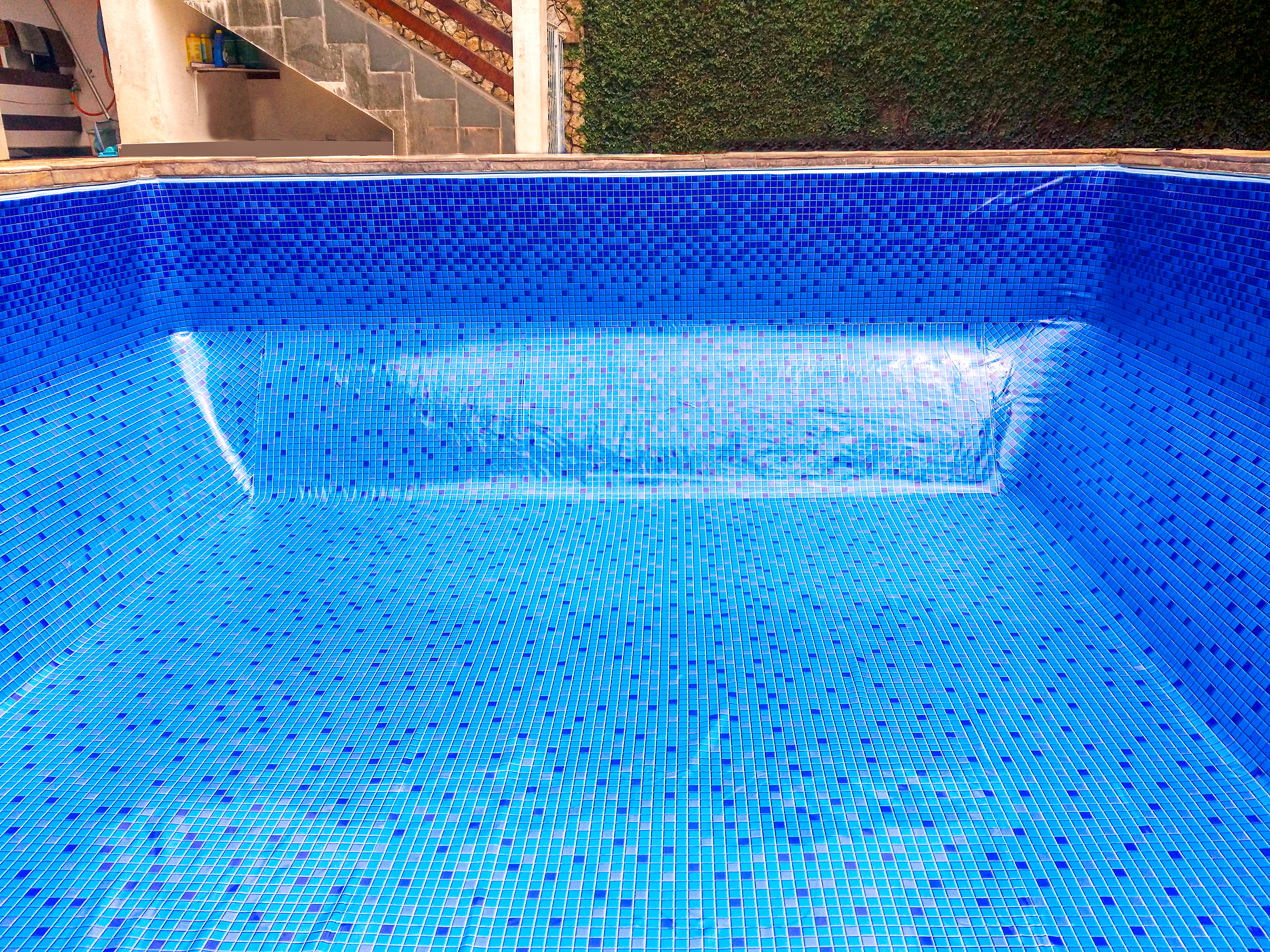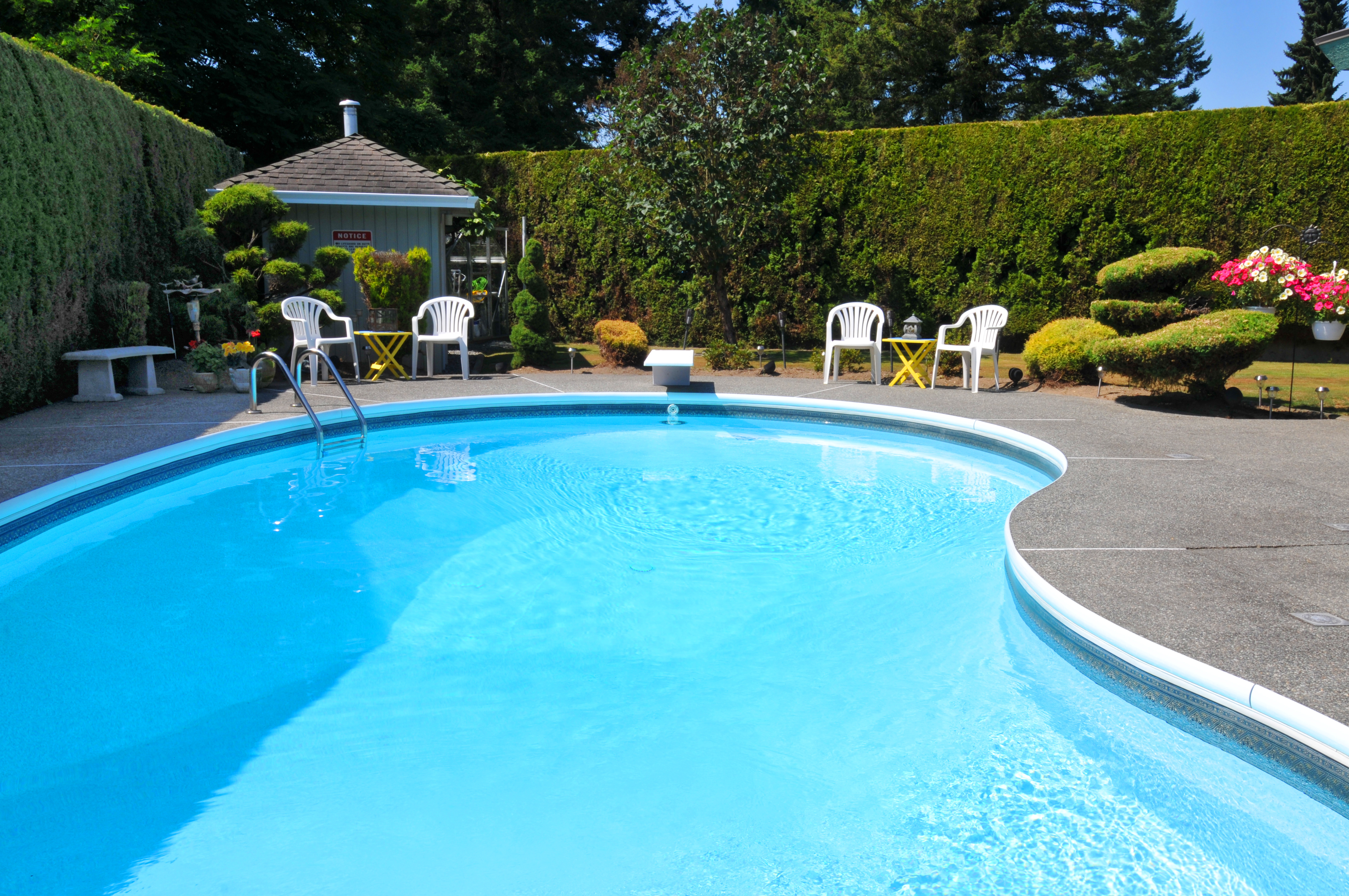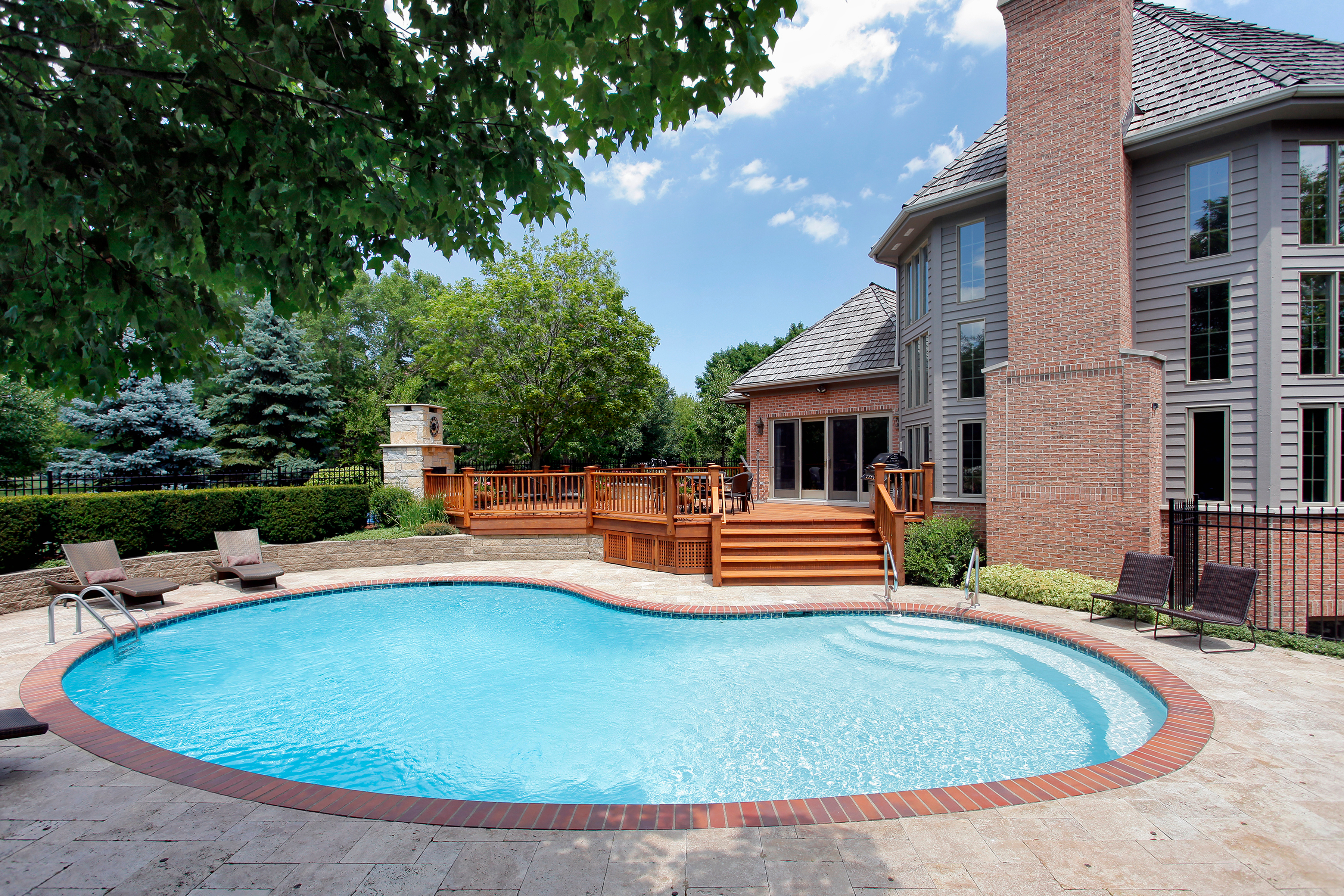
Thinking of adding a plunge pool to your backyard? Find out how much plunge pools cost, from materials to labor to add-on features.
Before you replace your liner or repair your pool, make sure your contractor is up to speed


No matter how well you maintain your pool, it will eventually require repairs. If you plan to bring in a pro for a patch, replacement, or any other type of fix, you’ll need to discuss the project before diving in. Addressing these pool repair questions will help you get on the same page.
The first thing your local pool repair pro will want to know is the type of pool you have. Since in-ground and aboveground pools are structurally different, they have different maintenance requirements and common problems.
Before you can get a quote, you’ll need to tell your contractor what problems you’re having with your pool. Though liner repairs are one of the most common for vinyl pools, you might need to address a range of issues—such as a broken pool heater, leaks, low flow, algae growth, cloudy water, or corrosion. Your contractor will talk to you about your issues and create a plan of action.
Though aboveground pools are usually circular or rectangular, in-ground pools come in a variety of shapes. Repairs or liner replacements can be more complicated in in-ground pools with curves or unique angles.
When it comes to replacing a vinyl liner, aboveground pools may have more standard sizing since they’re usually sold in kits. In-ground pools can have common dimensions but are more likely to deviate. If you’re replacing a liner, knowing the brand or size of your existing liner will help (but it’s also okay if you don’t).
It’s a good idea to discuss timelines with your pool repair pro. Certain repairs, such as leaks, potential safety hazards, and malfunctioning pumps, require urgent attention. Other repairs, such as staining, wrinkling, or cosmetic upgrades, may be able to wait. If you can schedule your repair for the off-season, you may be able to get a discount.
Your pool contractor may ask how you winterize your pool because, depending on the climate, improper winterization can prematurely degrade your liner. Not all pools close for the winter, but you should develop a maintenance routine to protect your investment either way.
From average costs to expert advice, get all the answers you need to get your job done.

Thinking of adding a plunge pool to your backyard? Find out how much plunge pools cost, from materials to labor to add-on features.

The cost of pool liner replacement in Columbus depends on the size and shape of your pool, as well as the liner material and type. Here’s how the costs break down.

If you’ve been considering installing a new pool in the Buckeye State, this guide will help you understand inground pool costs in Columbus.

Discover the cost to install a solar pool heater, including average prices, key cost factors, and tips to save on your project.

Installing a pool? Use this comprehensive pool inspection checklist before taking a plunge.

Swimming pool issues like algae or a clogged filter can happen to anyone. Learn more about common pool problems and how to fix them quickly and easily.